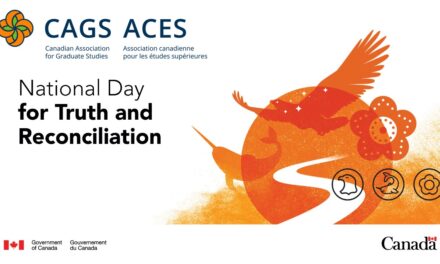CAGS Task Force on Excellence in Graduate Programs Releases Final Report And Calls To Action
The CAGS Task Force on Excellence in Graduate Programs was formed in late 2018 with an overarching goal to set out principles and recommendations for excellence in graduate programs. Recognizing the enormity of the undertaking, the task force elected to first focus on PhD programs. The resulting report focuses on three major themes: (i) how to define and measure excellence and who gets to define it; (ii) exploring excellence in interdisciplinary programs and individualized interdisciplinary programs as a model to extract potential universal principles of an “excellent PhD program”; and (iii) the need to update the learning outcomes for doctoral programs.
We found defining excellence was not an easy task. Existing frameworks for excellence in academia are steeped in traditional viewpoints that serve to perpetuate the status quo with little room to expand definitions of excellence in research, scholarship, and creative practice. To move away from insular definitions of excellence that are defined by one type of stakeholder, namely academics in the field, we need to solicit and incorporate many stakeholder viewpoints; thereby creating an inclusive and forward- looking definition of excellence.
Exploration of existing degree level standards, program approval processes, and quality assurance and assessment practices revealed gaps and opportunities in how programs and mentors could actively use program learning outcome frameworks to improve the student experience. The task force puts forward the idea that we need to better scaffold a student’s learning and developmental journey. We can do this by explicitly incorporating the full suite of PhD learning outcomes in an individual development plan that maps the formal and informal elements of the program to the learning outcomes and embraces exploration and preparation for a broad range of careers.
Exploration of excellence in individualized interdisciplinary doctoral programs, as a means to identify the universal elements of an excellent doctoral program, revealed the importance of the resources to support the program and the connection to a community of researchers, and the opportunity to train faculty to participate in the process that can be filled with ambiguity. Interdisciplinary research pushes hard on the norms of what constitutes a traditional dissertation and defence, and highlights flexibility as key to an excellent program. We acknowledge several Canadian universities that are leading the way in opening up these alternatives. Furthermore, increasing flexibility in what constitutes a dissertation and defence, may appeal to individuals doing different types of work, such as community-engaged work, as well as individuals entering PhD students from non-traditional pathways.
To share our findings and feedback on our recommendations that were gathered throughout the process, we have created three in-depth reports that complement this synthesis document, along with a full list of recommendations at the end of this report. Here we list six overarching recommendations for change that are directed at policy makers and leadership in graduate education and programs.
Task Force Chair
Debby Burshtyn, Dean, College of Graduate and Postdoctoral Studies; Professor, Department of Biochemistry, Microbiology and Immunology, University of Saskatchewan
Task Force Members
Kenisha Blair-Walcott, Researcher and Former PhD student, University of Saskatchewan
Eileen Denovan-Wright, Associate Dean, Faculty of Graduate Studies; Professor of Pharmacy, Department of Pharmacology, Dalhousie University
Diane Dupont, Former Dean, College of Graduate Studies and Professor, Economics, Faculty of Social Sciences, Brock University
Vina Goghari, Vice-Dean, Research and Program Innovation, School of Graduate Studies; Professor, Department of Psychology, University of Toronto
Mabel Ho, Director of Professional Development & Student Engagement, Faculty of Graduate Studies, Dalhousie University
Elizabeth Oddone Paolucci, Former Director, Community Health Sciences Graduate Program (MDCH); Professor, Cumming School of Medicine, University of Calgary
Luc Simon, National Coordinator for the Canadian Graduate and Professional Student Survey (CGPSS, 2010-2020)
Ian Wereley, Executive Director, Canadian Association for Graduate Studies (CAGS)
Former Members:
Fiona Black, Associate Dean Graduate Studies, Dalhousie University,
Philippe-Edwin Bélanger, Directeur, Service des études supérieures et postdoctorales a l’Institut national de la recherche scientifique
Gretchen Kerr, Former Vice-Dean, Programs and Innovation, School of Graduate Studies, University of Toronto










